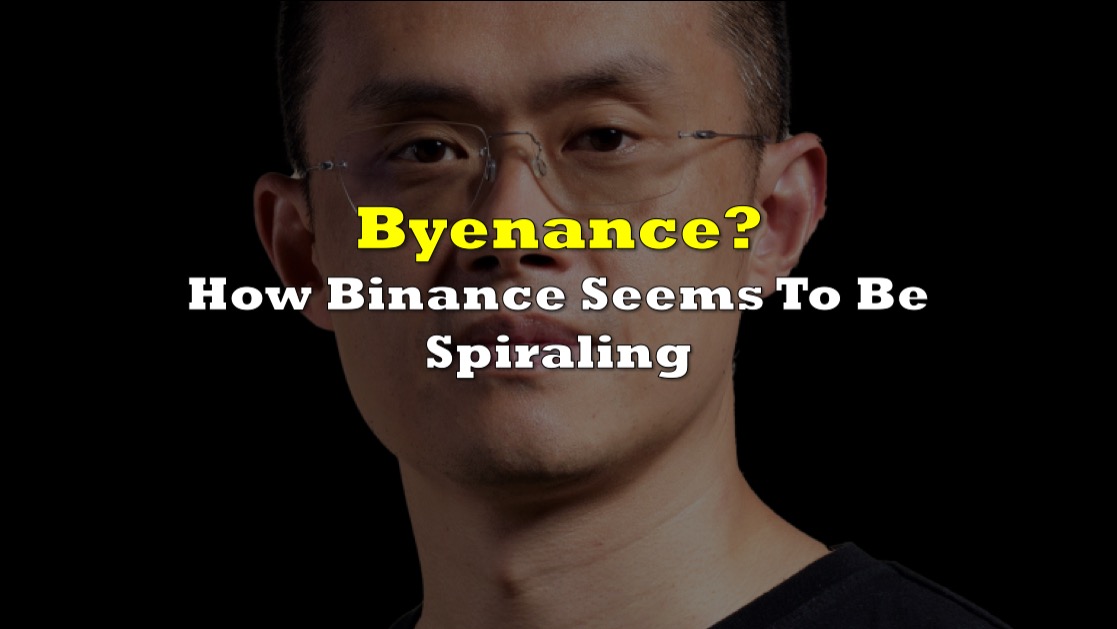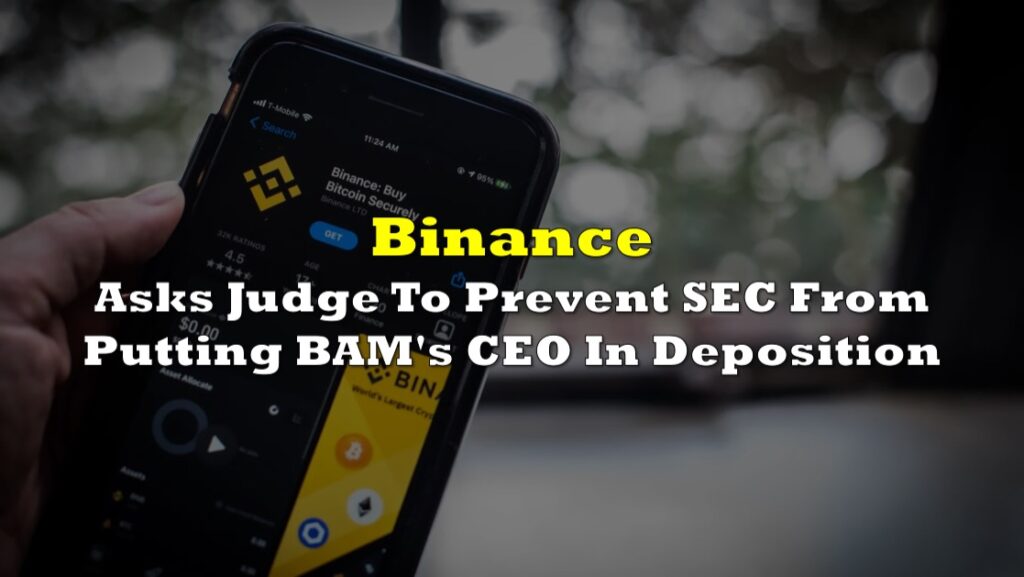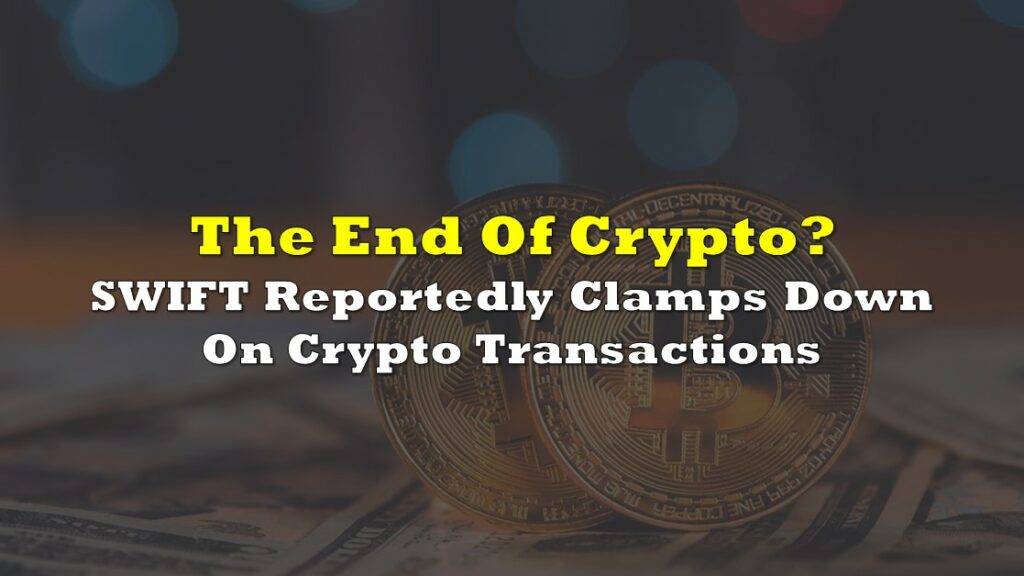The past month hasn’t been a good one for the crypto exchange giant Binance, to say the least.
Blocking the Voyager purchase
Recently, Binance.US’s $1.02-billion agreement to buy the assets of insolvent crypto lender Voyager has been blocked by New York and Federal financial regulators, who warned in filings on Wednesday that the transaction could be discriminatory and illegal.
Last December, Voyager announced that Binance’s US counterpart won the highest bid to acquire its assets. The offer consists of the fair market value of Voyager’s cryptocurrency portfolio at a to-be-determined date in the future (but is currently worth approximately $1 billion) and additional consideration equal to $20 million of incremental value.
The deal is targeted to close by April 18, 2023, with Binance.US then making a $10 million deposit and agreeing to reimburse Voyager for certain expenses up to a maximum of $15 million.
But the deal faces a hiccup with the US Committee on Foreign Investment in the United States (CFIUS) citing in its review national security concerns on the proposed acquisition.
The Securities and Exchange Commission (SEC) also objected to the deal in January, saying there wasn’t enough evidence to indicate Binance.US could afford it.
In its recent statement, the SEC said aspects of the proposed Binance.US-Voyager merger may also violate the law because of how the proposal envisions repaying Voyager’s former clients.
Under the deal, “the transactions in crypto assets necessary to effectuate the rebalancing, the redistribution of such assets to Account Holders, may violate the prohibition in Section 5 of the Securities Act of 1933 against the unregistered offer, sale, or delivery after sale of securities,” a filing by the SEC said, citing in particular the VGX token issued by Voyager.
“It is the Debtors’ burden to present credible evidence that the provisions of the Plan are feasible and not in violation of applicable law,” the agency added.
The regulator also highlighted media reports that Binance is preparing to pay penalties for past violations of money laundering and corruption law as evidence that the transaction could become “unfeasible” and “impossible to consummate.”
In two separate Wednesday filings, the New York State Department of Financial Services (NYDFS) and Attorney General Letitia James both challenged the merger, alleging that Voyager was illegally serving consumers in the state.
“Despite the fact that none of the Debtors are licensed in New York, the Department is aware of allegations and other information indicating that one or more of the Debtors may have operated and may be continuing to operate in New York in violation of Applicable Law,” the NYDFS filing said.
The agency also stated that the scheme discriminates against New Yorkers, who will be unable to reclaim their cryptocurrency for six months until Binance.US obtains state approval.
Stablecoin issuer halted
The recent development follows Binance’s announcement that cryptocurrency startup Paxos Trust–its backer for the stablecoin BUSD–was ordered by NYDFS to halt producing new tokens. The agency argues that the digital asset is an unregistered security, reigniting the debate on where crypto assets and products should be treated as securities.
BUSD is a Binance-branded stablecoin that is pegged to the US dollar one-to-one. Binance and Paxos announced a collaboration to deploy it in 2019. BUSD is also listed on itBit, a digital asset exchange owned by Paxos.
Binance transferred $400 million to a firm managed by CEO Changpeng Zhao. Banking documents and corporate messages demonstrate that Binance had hidden access to a bank account belonging to its ostensibly independent US partner and transferred huge quantities of money from the account to a trading firm owned by Zhao.
Records examined by Reuters for the first three months of 2021 indicated that more than $400 million went from the Binance.US account at California-based Silvergate Bank to this trading entity, Merit Peak Ltd. According to the data, the Binance.US account was opened in the name of BAM Trading, the operating arm of the US exchange.
Market shifting, Zhao pulling
According to Zhao, almost $2.5 billion poured out of Binance’s stablecoin last week, citing the “shifting” landscape.
The majority of the fund flow moved from Binance USD to another stablecoin, Tether–the latter saw its market cap increase by nearly $2.4 billion.
BUSD market cap dropped -$2.45B (from 16.1B to 13.7B as of now), and most of it has moved to USDT.
— CZ 🔶 Binance (@cz_binance) February 17, 2023
USDT marketcap + 2.37B (From 67.8B to 70.1B)
USDC also declined -739M (from 42.3B to 41.5B)
Landscape is shifting.
(Note: BUSD is NOT issued by Binance.) pic.twitter.com/kVrZUYjuOh
This follows the report that banking documents and corporate messages demonstrated Binance had hidden access to a bank account belonging to its supposedly independent US partner, and transferred huge quantities of money from the account to a trading firm owned by Zhao.
Kimberly Soward, a Binance.US spokesperson, did not respond to Reuters’ questions about the transfers listed in the bank documents. She said in a statement that Reuters’ reporting utilized “outdated information,” but she didn’t elaborate.
“Merit Peak is neither trading nor providing any kind of services on the Binance.US platform,” she noted, adding that only Binance.US workers have access to the US company’s bank accounts.
There has been growing concern since late last year that Binance is not as transparent with its books as it projects to be. In a piece written by Dirty Bubble Media–whose report on FTX and Alameda was instrumental in exposing the crypto firms–the platform has shifted its focus to Binance, claiming that the exchange is freely exchanging assets with Binance.US in an attempt to skirt American regulatory laws.
READ: Are Binance.US Assets Commingled With Binance’s?
Zhao, however, disputed the claim as merely “FUD”–a shorthand for fear, uncertainty, and doubt.
But not a few days later, in an “ask me anything” session, Zhao himself admitted that Binance.US accepts international clients, shedding some light on whether the American counterpart’s assets are commingled with the global exchange.
“The recent [Binance] US to Binance.com international transactions… Binance.US accepts international clients,” said Zhao. “They are market makers that work on both, they transfer funds.”
READ: Changpeng Zhao: “Binance.US Accepts International Clients”
Binance’s former CFO also reportedly never saw the firm’s full books during his three-year stint.
Information for this briefing was found via Reuters, Coindesk, and the sources mentioned. The author has no securities or affiliations related to this organization. Not a recommendation to buy or sell. Always do additional research and consult a professional before purchasing a security. The author holds no licenses.









